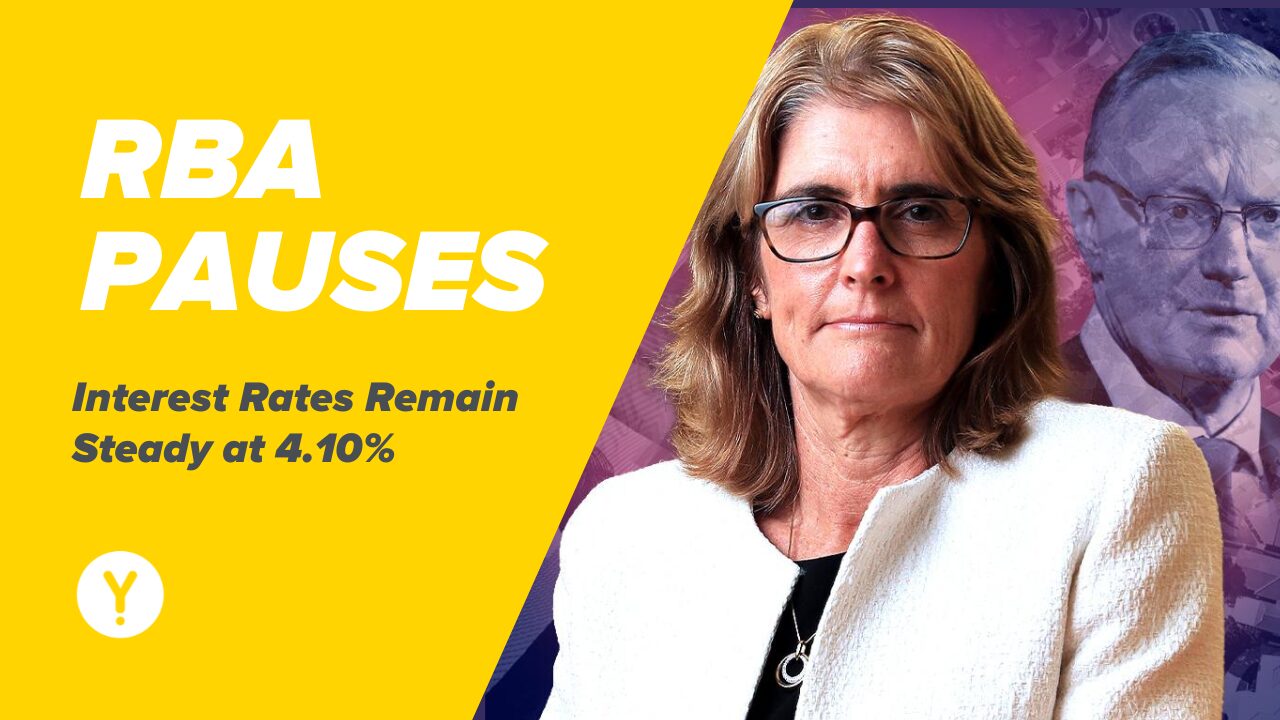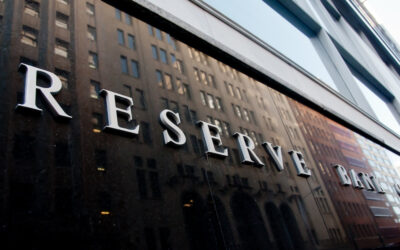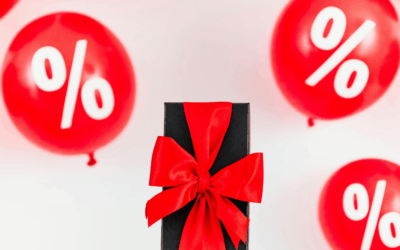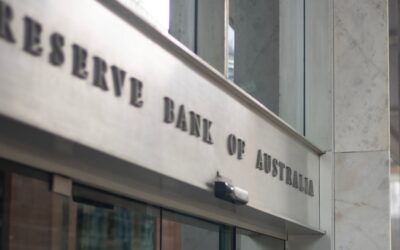In this article:

Interest rates remain on hold for the fourth consecutive month, as the Reserve Bank of Australia (RBA) continued its steady approach – leaving the official cash rate at 4.10% at the October board meeting.
Today was the first board meeting headed by the new RBA governor, Michelle Bullock, who has taken over from Philip Lowe.
Despite today’s pause, homeowners have still had to face a record-setting 4% increase to the official cash rate in just 15 months, with fears of one more rate hike still to come.
What did the RBA say?
Releasing her first statement as Governor, Bullock reiterated the RBA’s commitment to return inflation back to the target range of 2-3%, however, they’re forecasts are predicting that to occur in “late 2025.”
“Returning inflation to target within a reasonable timeframe remains the Board’s priority,” said Bullock’s statement.
“High inflation makes life difficult for everyone and damages the functioning of the economy. It erodes the value of savings, hurts household budgets, makes it harder for businesses to plan and invest, and worsens income inequality. And if high inflation were to become entrenched in people’s expectations, it would be very costly to reduce later, involving even higher interest rates and a larger rise in unemployment. To date, medium-term inflation expectations have been consistent with the inflation target and it is important that this remains the case.”
Today’s statement continues the holding pattern the RBA has implemented since July, as the central bank bides its time to assess the true impact of the rate hiking cycle on the Australian economy.
Bullock said that we may see more rate increases in the future, as it “may be required to ensure that inflation returns to target in a reasonable timeframe, but that will continue to depend upon the data and the evolving assessment of risks.”
House Prices Headed for all-time record growth
Australia’s property market, led by bullish markets in the capital cities, continued to defy expectations, with CoreLogic reporting another increase of 0.8% in the Home Value Index (HVI) for September.
CoreLogic reported that “since finding a trough in January” this year, dwelling values have recovered 6.6%, with September seeing a record monthly increase in dwelling values in Perth and Adelaide.
CoreLogic’s Director of Research Tim Lawless pointed out that if these trends continue, “we will likely see the HVI recover to a new nominal high by the end of November.”
“We have already seen dwelling values reach new record highs in Perth and Adelaide. Brisbane looks set to reach a new record high in October, with home values currently only 0.6 per cent below their previous peak,” said Lawless.
Despite pressures on households across the country with inflation, cost of living increases, and stubborn wage growth, house prices continue to bounce back from the post-covid trough.
According to the HVI, The average cost of a home in Sydney is now $1,110,660.
In Melbourne? $776,716.
In Adelaide? $691,591.
However, according to Stephen Koukoulas house prices aren’t concerning the RBA….”yet”.
In attempting to explain the strange divergence between house prices and other economic trends, Bouris said:
“It’s the people over 50 (generally speaking) who are not being affected by what’s going on.”
“They’re actually benefitting,” replied Koukoulas, “Their house prices are going back up, their term deposits, which two years ago they were getting 0.1% if they were lucky, they’re now getting 4-5%…they’re the ones that are doing well during this interest rate hiking cycle.”
“It’s the younger folk, I’ll say under 50 years of age, with kids, a big mortgage, with only a moderate wage increase, no savings in the bank…you’ve got this situation where there’s a two-speed economy occurring, based on: do you own a house and have your money in superannuation or some term deposits VS you’re still working, real wages are still falling, you’ve got a mortgage and your cost of living is going up.”
“There’s the divergence. Some people are doing fine. But a big chunk of the population are not.”
How are consumers feeling?
Following last month’s rate decision, Mark Bouris sought feedback from his social media audience, to assess how Australian’s are generally feeling after a record rise in interest rate.
“Pulse Check” saw almost 1000 responses to some pressing questions with the following results:
84% of Australians had to cut back on overall spending in 2023.
53% said interest rates should NOT have been lowered even though it would mean higher inflation.
76% said the Government is not doing enough to support those trying to enter the property market.
81% said they were worried about rising energy costs.
60% of respondents said saving to buy their first home was a top priority.
When asked: ‘Is the Australian dream of owning a home still a reality?‘ there was an almost perfect split, with 51% of respondents saying YES.
Stay Up to Date
It’s been a turbulent year and a half for both homeowners and those looking to break into the property market. As interest rates rise, it becomes more difficult to borrow money, and the home loan market becomes more competitive. So why navigate the loan market on your own?
A mortgage broker’s expertise goes beyond pairing you with a suitable home loan. They consider your unique financial circumstances, your short and long term goals, and ensure you make informed, strategic decisions.
In uncertain economic times, a mortgage broker can be your trusted support network, who can help you understand and manage the effects of fluctuating interest rates. So if you’re looking to break into the property market, or you’ve got a feeling that you’re not getting the best deal, reach out to us today to chat with one of our experienced mortgage brokers and we’ll get your sorted.



